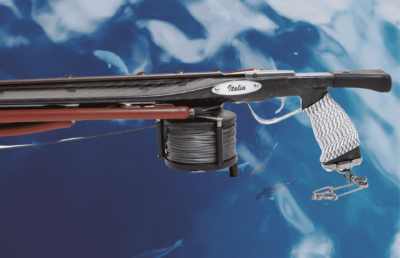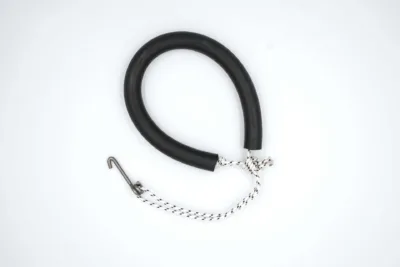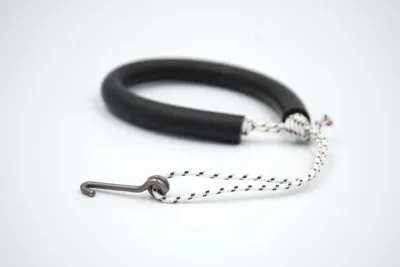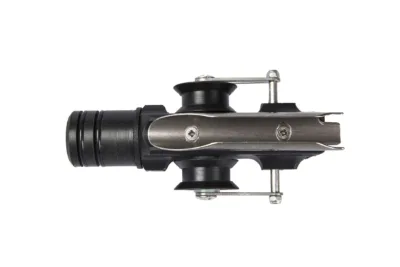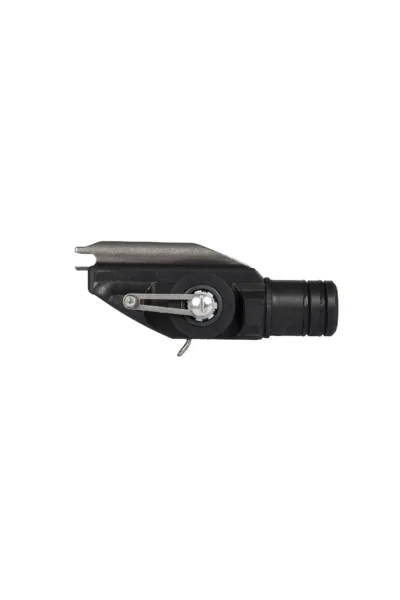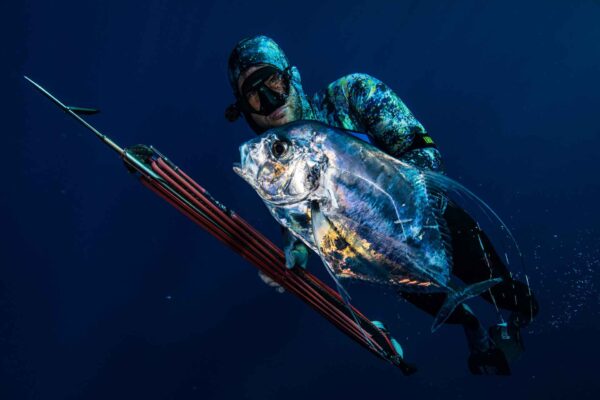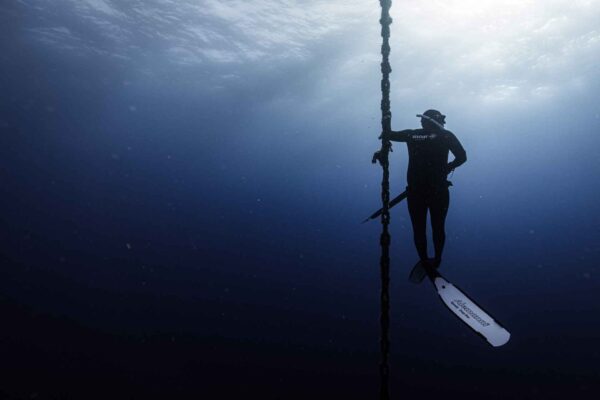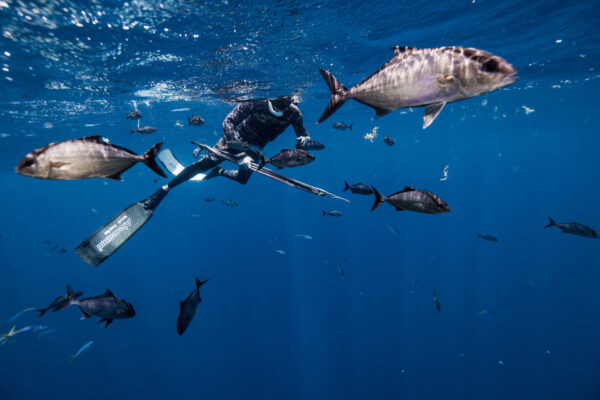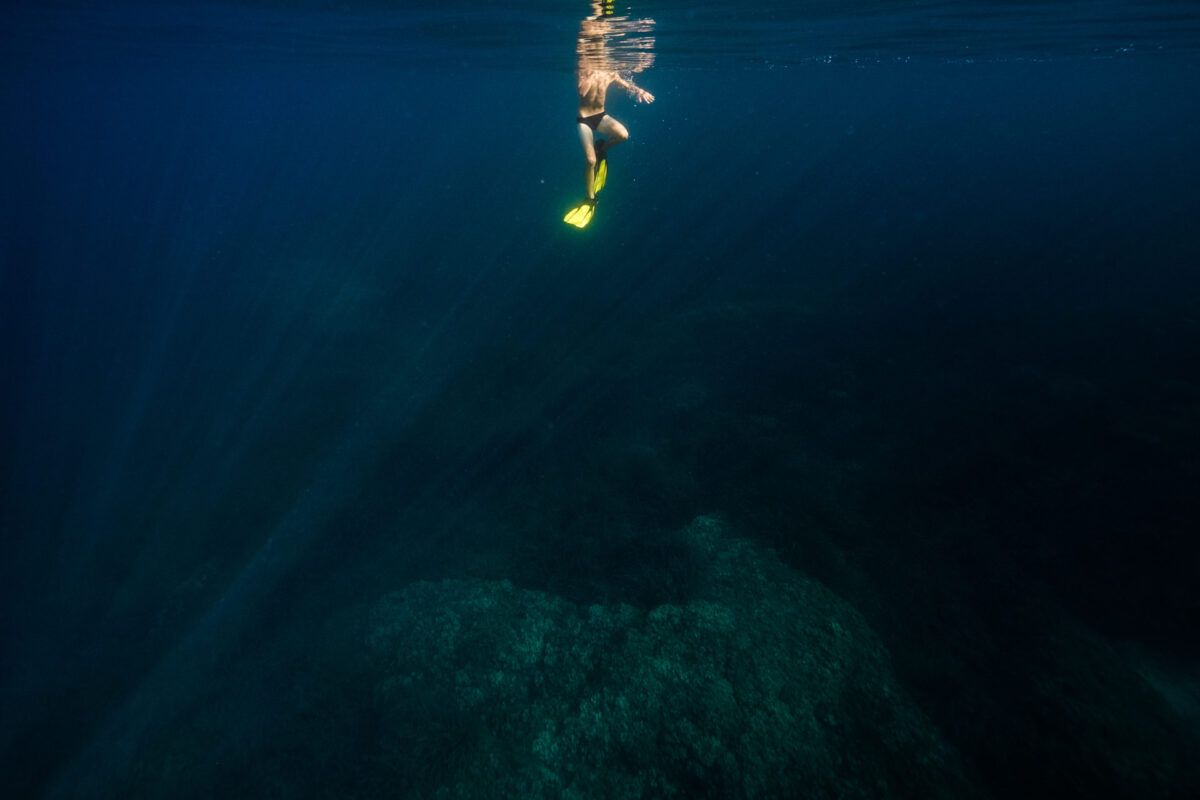Underwater fishing techniques
Fear of depth: how to defeat it
Fear of depth: how to defeat it
When you dive you always go a little against the laws of nature: holding your breath to go where you can't see the top or bottom is in itself an unnatural and partly irrational practice. It is also for this reason that thediving in apnea it is always intense and innately dangerous.
The body is subjected to very strong physical stimuli, which intensify as depths increase, and some vulnerabilities that are easily manageable outside the water can turn into a serious danger. There fear of depth, in this sense, is among the feelings that most typically accompany the scuba diver during diving.
Spearfishing: fear and panic are not the same thing
La fear of depth it is an absolutely natural feeling when diving: even in the best visibility conditions, the distinguishable horizon is always limited and the unknown always inevitably begins a few meters from the diver. Therefore, even in the most expert underwater fishermen, a sort of state of alert is activated, a "positive stress” which increases attention and defense mechanisms and allows you to focus on priorities, overshadowing secondary information such as the perceived temperature.
Often the first sensation you experience when immersing yourself in a few meters of clear waterin absence of well-defined boundaries to the eye, is that of flying. However, the question changes, sometimes radically, by going deeper: i colors they gradually become less distinguishable, and the light decreases dramatically. The time expands, the body becomes more and more present to the mind and the sense of disorientation can become predominant.
According to the investigations of Divers Alert Network, over 20% of fatal water accidents are caused by panic, which is probably the leading cause of death in diving activities. Panic and fearHowever, they are extremely different things. While fear is a diver's most reliable companion, above all when fishing in murky waters or you dive for a very long time, panic represents one of the most dangerous enemies for those who practice diving, both in freediving and with breathing apparatus.
Scuba diving requires physical training and mental preparation: it is no coincidence that many diving fishermen, like the great freediving champions, they approach practices like it yoga and autogenic training.
Diving anxiety: signs not to be underestimated
safely undertake a dive it is necessary to be present to themselves, be aware of your body, your movements and your state of mind. Diving safely means being able to deal with unexpected events and unexpected events with rationality, knowing manage your breathing and avoiding very dangerous practices such as ascend too fast on the surface.
When the natural fear of the unknown transforms into a potentially uncontrollable and therefore dangerous feeling, it manifests itself first of all with i typical signs of anxiety, Including:
- rapid breathing;
- muscle tension and stiff or locked joints;
- irritability and inability to concentrate;
- tendency to talk too much or too little;
- avoidance eye contact;
- tight grip or fists, even in water;
- stalling e imaginary problems (e.g. equipment problems);
- tendency to "escape" towards the surface.
When you realize that your freediving partner shows some of these behaviors already out of the water, it is important to make him understand that he is not in the best mood for immersion.
Some mood disturbances, in general, can affect one's ability to remain calm while diving, and this is why the practice of freediving is strongly discouraged in the presence of serious forms of depression, claustrophobia or problems related to alcohol and drug use.
Even some physical conditions can contribute to generating the symptoms of anxiety: among these anemia, cardiac arrhythmias, diabetes, asthma and thyroid disorders, and also the taking of certain medicines or substances such as coffee and nicotine can influence the sub's unconscious behavior.
Do we really need to defeat the fear of depth?
The normal anxiety linked to the underwater environment, unknown and without borders, can easily turn into panic: a well-known case is that of Blue Orb Syndrome, an agoraphobic reaction that can occur when one completely loses orientation and loses contact with the surface (or with the seabed, in the case of diving in the blue).
To address the fear of depth, it is necessary to work consistently and always keeping one's limits in mind: dive often, don't be in a hurry to go down, learn to appreciate the fishing opportunities in the most congenial scenarios gradually arriving at the most "anxiety-provoking" ones, such as very murky or deep waters.
The best-known technique for dealing with stressful situations in water is summarized in the mantra “Stop, Breathe, Think, Act”: when you start to feel panic, the most important thing to do is regain control about themselves and the situation. The ability to manage these powerful stimuli is not innate: one must train oneself to respond to panic situations, even considering the idea of engaging in a scuba diving or freediving course.
The idea of defeating fear, however, is the result of a reckless and dangerous approach: the fear it is a feeling that must always accompany the diver, airreplaceable ally which lets the body speak before the brain, which shows the diver the limits not to be crossed and which is a fundamental part of the diving experience.




